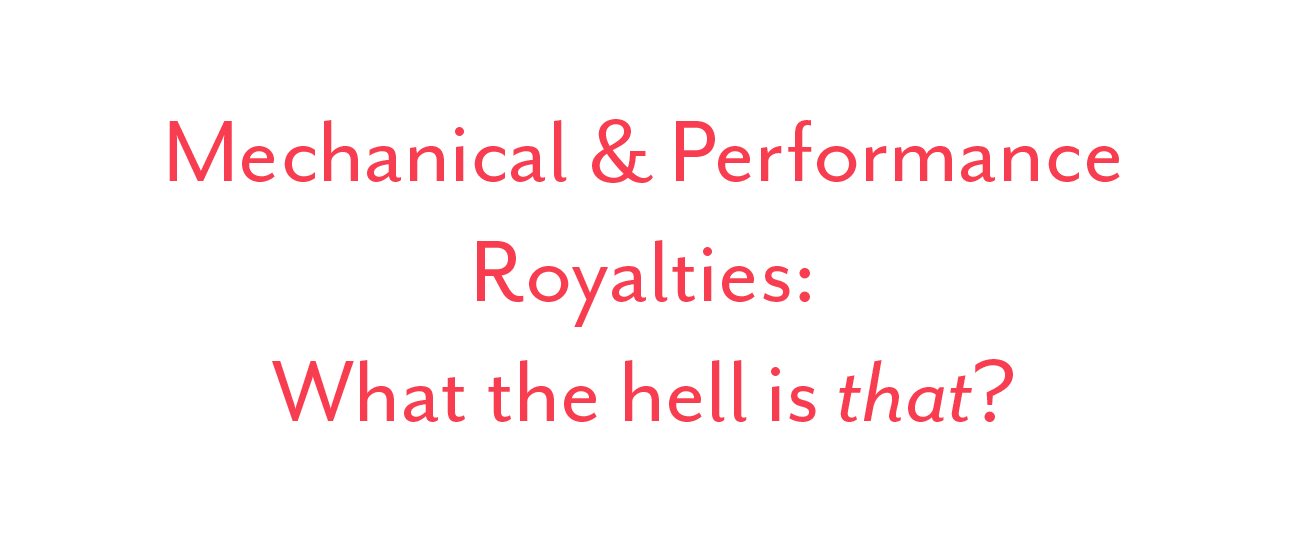As an independent artist you probably have your music on Spotify & co. And these services pay you through your aggregator, distributor or label. Additionally you might DJ or do some public performances where you get paid. But did you know that you are owed more than that? Platforms like Spotify and venues where you play are required by law to pay a fee to so-called collection societies. And these collection societies get the money whether you’ve joined or not.
Artist vs. Writer
Before talking about the different types of revenue that can be collected we first need to know that there are two types of musicians: songwriters and performing artists. The artist or performer is the entity performing the song. Take Martin Garrix for example: When releasing a track you always hear about “Martin Garrix”. But that’s not his real name, that’s his artist name or performer name. But as a songwriter he has to state his real name which would be Martijn Gerard Garritsen. On tracks like “Animals” only Martin himself worked on it so the difference is really not important, but bands or other artists have many different people working on one song. While the artists on “Titanium” are David Guetta and Sia, the songwriters are many more people who usually you do not know. And these people get money as well.
Performance Royalties
Performing artists hold the copyrights to the recording of a song. This is called a master recording. The royalties are paid to the artists every time a song is performed in public. This means a public performance is whenever your song is played in a bar, over the radio or on streaming services.
Mechanical Royalties
Songwriters (incl. Texters) hold the copyright to the melody and lyrics of a song. The royalties are paid whenever someone acquires a copy of a song. This can be online (e.g. through iTunes) or on physical media (e.g. CDs).
How to get paid
The two rights described above will both be collected via collection societies. You can either work with them directly or use a label or publisher. But in both cases you need to sign up with the societies, which usually costs money!
Direct approach
In Austria the performance royalties are collected by AKM, the mechanical ones by AUME. These two work together so you only have to sign up once and you can use only one platform to tell them about your work. Singing up costs a fee but fortunately in Austria that’s a one time thing. If you live somewhere else there might be a one time fee, an ongoing fee or both (like in Germany). Then you will add all your tracks to their database. Mechanical royalties will be automatically collected, but whenever you play something live you will either be asked by someone from the venue to give them a tracklist, or you will send the tracklist directly to your PRO (=Performance Rights Organization).
3rd-party approach
If you want you can sign up with 3rd parties to get some bonus features. This mostly applies to song copyrights where you can have your own publisher. Master recordings are usually handled be the record label (which you might be yourself).
Music publishers take a percentage cut off of your income from royalties but make submitting your music a little easier and more importantly pitch your songs! Depending on your publisher and your contract this can mean just adding it to a database and having to manually apply for synch (synch means your music being played in a TV ad for example). Or it can mean that you really don’t have much work to do and money is arriving on it’s own.
Stuff to check out
If you are new to all of this you might want to check out this Q&A by AKM: https://www.akm.at/mitglieder/fragen-antworten (German)
Here you can sign up for AKM & AUME (highly recommended!): https://www.akm-aume.at/akm-webapp/ (German again)
Other than performance and mechanical royalty laws, there is also neighbouring rights. Basically you will get money if you are an artist, a label and a music video creator. Here’s the Austrian site: http://lsg.at/ (danger! bad design!) and this one is for artists specifically https://www.lsg-interpreten.com/ (both in German). If you want to learn more about neighbouring rights I’d recommend checking out the German society GVL though: https://www.gvl.de/ (German & English)
If you have questions or anything to add I’d love to hear from you in the comments. Happy royalty collecting!
